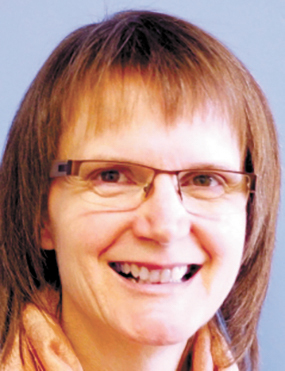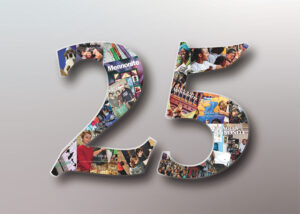We are daily awash in choices and opportunities, and many of us are affluent enough to be able to choose among many options. Many of us make many choices even before we get out the door in the morning. Our stomachs are full, we live in fine houses, our income and assets have grown, our retirement funds are increasing, and our possessions keep multiplying.
As the people of Israel stand on the verge of possibilities in the land they are about to be brought into, Moses begins to say: “When your herds and flocks have multiplied, and your silver and gold is multiplied, and all that you have is multiplied . . .” (Deuteronomy 8:13; NRSV). Apparently the people can expect that everything they have will multiply. Why might it be important for God’s people then—and now—to pay attention to the words of this text?
What is at stake?
Like the people first addressed in this text, our very identity as people of God and our loyalty to God’s way are at stake. The speech in Chapter 8 anticipates the end of Israel’s long sojourn in the wilderness. It describes the bounty of the good land they are about to enter after their wandering in the desert: It is a land that will produce wheat, barley, fig trees, vines, pomegranates, olive trees and honey, and there will be no lack of bread. And what is more, the land has abundant resources of iron and copper, assets able to produce incredible wealth. The promise is vast: “You will lack nothing” (verse 9).
But in the next breath we read: “Take care that you do not forget the Lord your God, by failing to keep his commandments . . . which I am commanding you today” (verse 11).
What could go wrong?
When the people of Israel are settled comfortably in this good land, they could forget that they are a people who rely on God to protect them and provide for them. This warning is meant to jolt them out of dozing off, their stomachs full from feasting on the bounty of the land. When “all that you have is multiplied, then do not exalt yourself, forgetting the Lord your God” (verse 13-14).
A gift kept long enough seems like a possession
The problem reflected in Moses’ warning to the people of Israel is not that God is no longer trustworthy. Rather, because comfort could replace the people’s awareness of their complete dependence on God, Moses knows that their identity could shift. They could begin to trust in themselves and say: “My power and the might of my own hand have gotten me this wealth” (verse 17).
Now wealth is not condemned in this text. In fact, the promise is that assets will accumulate and multiply in the good land. Moses’ words do not condemn hard work, criticize dedication to one’s career or censure the kind of perseverance amid hardship that yields success.
What Moses identifies is the danger that attachment to what makes us comfortable can compromise our true identity. When our stomachs are full, our temptation is to look around at everything we have accumulated and simply be satisfied with ourselves. We can forget that everything is a gift. When we’ve eaten our fill, we can forget to bless the Lord.
In his commentary on Deuteronomy, Walter Brueggemann writes that Moses wanted to remind people that God would give them what they needed, whatever land they were in. They were to be on guard, because “a gift kept long enough begins to seem like a possession . . . separated in the memory of the recipient from the giver, so that the giver is forgotten.”
Mark Allan Powell, in his book Giving to God: The Bible’s Good News about Generous Living, uses the metaphor of house-sitting to explore this tendency. People who house-sit have access to all the amenities of the abode; for a time they can pretend that it’s their place. Now, what if these house-sitters decided to change the locks and claim the house as their own? Suppose when the owners confronted the house-sitters, the sitters’ claim would be, “Hey, the house is mine. You gave it to me!”
As wealth increases, sensitivity decreases
When we forget that everything is a gift, we can begin to believe that whatever we’ve gathered is ours: we earned it, deserve it and we can do with it whatever we please. In several recent social class experiments, researchers have shown that increased wealth is associated with decreased sensitivity to others in one’s social environment.
Paul Piff, assistant professor of psychological science at the University of California, Berkeley, conducted several experiments documenting that as wealth increases, people are more likely to see themselves as deserving of good things in life and entitled to better outcomes. At the same time, they are less likely to show compassion for others.
Moses suggests that to resist the amnesia that seems to accompany a full stomach, which leads to becoming complacent and self-satisfied, God’s people are to reaffirm their identity and “keep the commandments of the Lord your God, by walking in his ways and fearing him” (verse 6), and by being careful not to “forget the Lord your God, by failing to keep his commandments” (verse 11).
Keep the gift circulating
Ched Myers of Bartimaeus Cooperative Ministries suggests that for us to resist the temptation to cling to what we have been given, the gift must always move. The natural abundance of creation lasts only as long as the gift circulates.
Paul encouraged Timothy to exhort his congregation to practise circulating their gifts. We can hear echoes of Deuteronomy 8 and 15 in his pastoral letter to Timothy: “As for those who in the present age are rich, command them not to be haughty, or to set their hopes on the uncertainty of riches, but rather on God who richly provides us with everything for our enjoyment. They are to do good, to be rich in good works, generous and ready to share” (I Timothy 6:17-18).
Like Moses’ admonition, Paul’s antidote to the failure of memory that comes with a full stomach is generous living. Rather than dozing in a state of self-satisfaction, we can wake up, choose to take hold of life that really is life, and be generous with the gifts that we have been given. We can put our money where our mouth is when we say we love Jesus. In bumper sticker wisdom: “Tithe if you love Jesus! Anyone can honk.”
Living with ‘comfortable guilt’
Still, we find many reasons to resist living with open hands. The authors of Passing the Plate: Why American Christians Don’t Give Away More Money studied giving patterns and surveyed Christian givers. They write that many American Christians experience “a kind of ‘comfortable guilt’—that is, living with an awareness and feeling of culpability for not giving money more generously, but maintaining that at a low enough level of discomfort that it was not too disturbing or motivating enough to actually increase giving. . . . Many Christians did not have clean consciences about money. But neither did they seem prepared to change their financial dealings in ways that would eliminate their modest levels of guilt.”
But before we conclude that Christians just need to give more, we must address the deeper question of what stories shape our identity and loyalty. We may need to ask whether we are able in our affluence to be jolted out of amnesia by what Brueggemann calls an “astonishing memory of generous sustenance,” a surprising memory that God has been generous to us.
Living out of astonishing memories of generous sustenance
On a frosty September morning in the middle of his shift, a Winnipeg bus driver stopped his bus on Portage Avenue at Main Street. He proceeded to jump out and give his shoes to a man he had noticed walking barefoot that day and the day before. He drove the rest of his shift in stocking feet. To his surprise, the story went viral, picked up by media all over the world. Later that week, in an interview with a Winnipeg journalist, he recalled, “I couldn’t imagine him walking a mile without shoes. I couldn’t imagine how cold he was.” So when a light turned red and the opportunity presented itself, he acted.
Let’s share such stories of empathic imagination with one another, to stir ourselves out of the dozing that can overtake us when our assets multiply. Let’s add these stories to the fund of narratives that shape our identity as people called to be openhanded by a God who richly provides us with everything for our enjoyment.
Dori Zerbe Cornelsen is director of development at Canadian Mennonite University, Winnipeg. Reprinted with permission from Vision, Spring 2014, Vol. 15, No. 1 (bit.ly/vision-economics).
See also “Stories of generosity”
For discussion
1. Do you consider yourself as living in affluence? How does your life compare to your parents’ and grandparents’ lives when it comes to things like income, housing, clothing, food choices or travel? Are there other signs that our possessions have “multiplied”?
2. Have we reached the point where we forget to rely on God to protect us and provide for us, assuming that we have created our own success? Is accumulated wealth the only thing that makes us feel that way? What practices help us to remember that everything we have is a gift from God?
3. Dori Zerbe Cornelsen refers to a study showing that North American Christians tend to live with some discomfort about the amount of money they give, but the guilt is not enough to increase their giving. Do you think that is true? What justifications do we give for resisting greater generosity, even if we feel guilty?
4. What does it mean to “keep the gift circulating”? What stories of compassionate generosity have you seen or heard? How can we encourage each other to share what God has given to us?
—By Barb Draper









Leave a Reply
You must be logged in to post a comment.